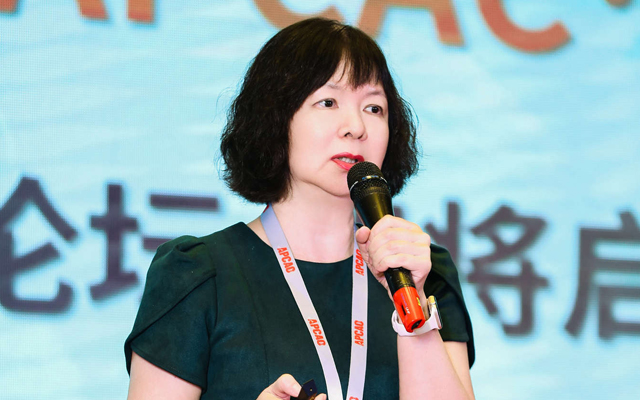Chinese DMCs and event suppliers looking to attract inbound international events will need to pay greater attention to satisfying environmental, social and corporate governance (ESG) conditions in their RFP submissions, advised Cathy Yun, founder of Sourcing China, an association of procurement officers representing China-based companies.
Speaking with business events industry professionals from across China at the Asia Pacific Corporate Annual Conference in Shenzhen last week, Yun pointed out that China is still in the early stages of ESG understanding and development despite growing importance of such considerations in global event bids.

Yun observed that event owners and organisers in Nordic countries have high requirements for environmental protection and social responsibility while those in the UK adheres to strict environmental policies regarding emission and energy. Those in the US, she added, focus on innovation and encourage the development and application of green technologies.
Speaking in Mandarin, Yun shared that procurement officers from companies in these countries pursue low-emisson travel and accommodation options, and would prioritise hotels with green certification and rail travel for journeys under four to five hours. Convention and exhibition centres bearing LEED (Leadership in Energy and Environmental Design) certification are also preferred.
Procurement officers also prefer to use electric vehicles to transport their event delegates, or to look into optimising transfer routes to reduce milage and emissions.
“These companies will also consider conference formats that blend online and offline participation, expect food waste management, prioritise seasonal ingredients being used to prepare food for delegates, cater food for only 90 per cent of attendees to minimise food waste, practice reduced packaging for delegates souvenirs, and donate or recyle leftover food, where possible,” Yun said.
With ESG considerations accounting for five per cent of bid document grading, Yun said Chinese DMCs and event suppliers should pay close attention to sustainable requirements.
She suggested that suppliers study emissions reduction channels and offset strategies.
Yun emphasised that suppliers that were able to convey a strong commitment to responsible operations would also gain “impression points”.
“Although RFPs may assign a five per cent weightage to ESG factors, the procurement officer may subconsciously grant higher grades to other non-ESG factors when they determine that the bidding vendor has strong ESG policies that are aligned with their own,” she added.
Karen Yue, group editor of TTG Asia Media, also highlighted the intensity of ESG focus in the business events industry during her opening keynote at the APCAC.
Yue said: “Attention to sustainable and responsible events is growing. This is due to increasing public awareness of climate impact as well as stricter laws that require companies to make climate-related disclosures in their annual sustainability reports.
“When organisations conduct events, sustainability requirement applies because carbon emissions from their events will go towards their overall carbon footprint. Because of this, more and more organisations and their event planners are prioritising destinations and event suppliers that have their own strict sustainability policies and initiatives to maximise the outcomes of responsible events.
“In fact, some organisations have a sustainability checklist to filter out suppliers. If you are not green enough, you cannot be an official vendor.”
Yue added that as competition for business events intensifies in Asia-Pacific, savvy CVBs are taking steps to help industry suppliers advance their sustainability ambitions and win the eventual approval of event planners who prioritise sustainability.





















